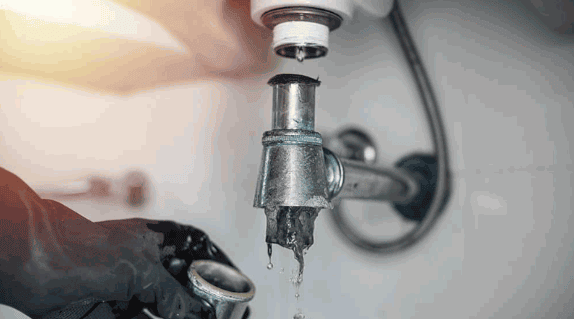
Are you tired of dealing with clogged drains in your home?
From hair buildup to grease and oil accumulation, blocked drains can be a major headache.
In this article, we will explore why drains get blocked, the common signs to look out for, and how you can prevent them from clogging up in the first place.
We will also discuss the most common causes of blocked drains and provide you with practical tips on how to clear them yourself.
If you're looking to keep your drains flowing smoothly, keep reading to find out more!
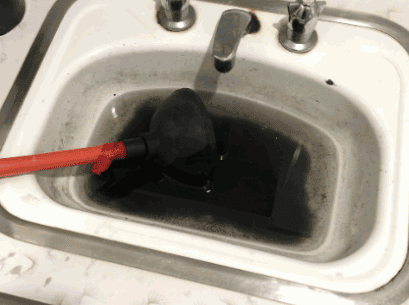
Why Do Drains Get Blocked?
Table of Contents
Drains get blocked for a variety of reasons, including the accumulation of waste materials like food waste, hair, and grease, which can lead to significant drainage issues if not addressed properly, especially in places like the UK where companies offer specialised services to manage drain blockages in both domestic and commercial drain systems.
Uncover more: Can Drain Cleaner Damage Pipes
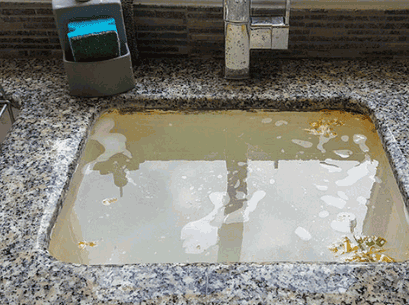
What Are The Signs Of A Blocked Drain?
One of the most common signs of a blocked drain is slow water drainage in sinks, showers, or toilets, often accompanied by unpleasant odours emanating from the affected area.
Plus slow water drainage and unpleasant odours, a blocked drain might also exhibit other warning signs. These can include gurgling sounds coming from the drains when water is running, water pooling around drains due to improper flow, and toilets that are difficult to flush. It's crucial to pay attention to these signals as they indicate that a blockage is forming and addressing it early on can prevent more severe blockages that could lead to costly repairs.
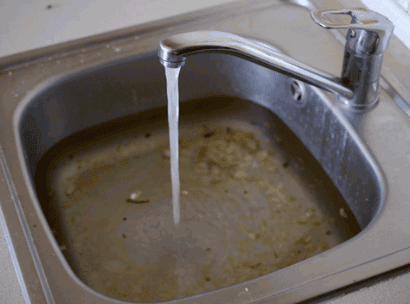
How Can You Prevent Drains From Getting Blocked?
Preventing drains from getting blocked can save you from significant inconvenience and potential damage to your plumbing system, and it can be achieved through regular maintenance, proper waste disposal, and the use of drain guards.
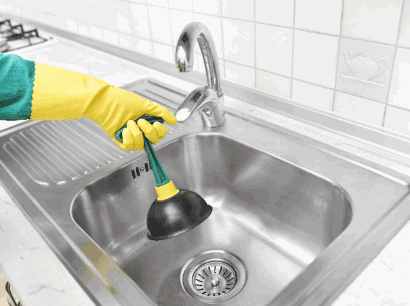
Regular Maintenance
Regular maintenance of your drainage system, including the use of tools like a drain brush and an electric softener, can help keep U-bends and other critical parts of the plumbing system free from blockages.
Aside from using tools like a drain brush and electric softener, there are various types of maintenance activities that can contribute to the smooth operation of your drainage system.
- Periodic inspections play a crucial role in detecting early signs of blockages or leaks, allowing for timely intervention before major issues arise.
- Implementing regular cleaning routines, such as removing debris and flushing with hot water, helps prevent the build-up of grease and other substances that could lead to blockages.
The consistent use of maintenance tools and techniques not only ensures the longevity of your plumbing system but also saves you from costly repairs and inconveniences caused by sudden blockages.
Proper Waste Disposal
Proper waste disposal practices, such as avoiding the disposal of food waste and grease down the sink, are crucial for maintaining a fully functional plumbing system.
Improper waste disposal not only clogs drains and sewer lines but can also lead to environmental pollution and health hazards. When food scraps and grease accumulate in the drains, they solidify and create blockages, causing water backups and unpleasant odours. Over time, this can result in costly repairs and potential damage to the entire plumbing infrastructure.
To prevent such issues, individuals can adopt responsible waste management techniques. Separating organic waste for composting, recycling materials like paper and plastics, and properly disposing of hazardous substances can significantly reduce strain on the drain system.
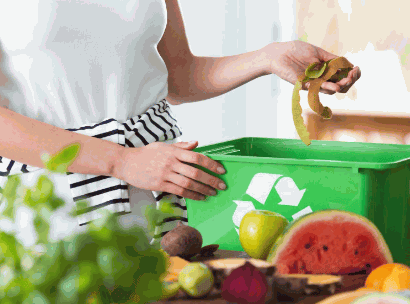
Use Drain Guards
Using drain guards in areas like showers and kitchen sinks can effectively trap hair and food particles, preventing them from entering the drainage system and causing blockages.
There are various types of drain guards available for different purposes, such as mesh screens, plastic strainers, and metal grates. Mesh screens are ideal for catching finer particles like hair, while plastic strainers are great for capturing larger debris such as food scraps.
In the bathroom, shower drain guards are essential to prevent hair clogs, while in the kitchen, sink drain guards help to stop food waste from accumulating and causing blockages. Regularly cleaning these guards is crucial to ensure they continue to function effectively and maintain optimal drainage flow throughout the household.
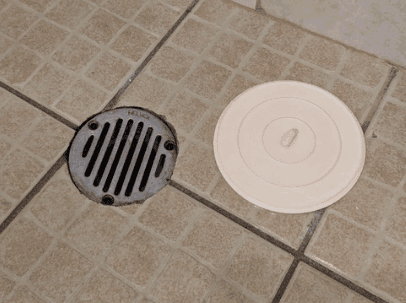
Be Mindful Of What You Flush
Being mindful of what you flush down the toilet is essential, as foreign objects can cause serious blockages in the toilet drain and overall drainage system.
Common items such as wet wipes, sanitary products, and cotton buds should never be flushed down the toilet as they do not break down easily in water. When these items accumulate in the drainage system, they can lead to blockages and blockages, resulting in costly repairs and potential environmental damage.
By practising careful flushing habits and only disposing of toilet paper and human waste in the toilet, you contribute to the long-term health of the drainage system. This simple act not only prevents blockages but also helps in maintaining the efficiency and sustainability of the sewage network.
What Are The Common Causes Of Blocked Drains?
Blocked drains can be caused by a variety of factors including the accumulation of calcium and magnesium deposits, improper disposal of waste, and natural interventions like tree root invasions which all affect the overall efficiency of the drain system.
Hair Buildup
Hair build-up in the shower and bathroom drain is one of the leading causes of blockages, often accumulating over time and forming clogs that impede water flow.
When you shower or wash your hair, loose strands tend to fall out and wash down the drain. Over time, these strands can combine with soap scum and other debris, creating a tangled mess that blocks proper drainage. As this build-up increases, you may notice water draining more slowly or even backing up in the shower or sink.
To avoid this common issue, consider using drain guards to catch hair before it enters the drain. Regularly cleaning your drain by removing accumulated hair and debris can also help prevent blockages and maintain efficient water flow.
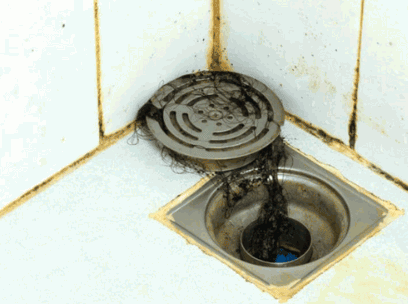
Grease And Oil Buildup
Grease and oil build-up in kitchen sinks can lead to severe blockages, as these substances cool and solidify in the drain pipes, creating a sticky layer that attracts other debris.
This can result in slow-draining sinks, foul odours, and even complete blockages if left unattended. The properties of grease and oil make them prone to hardening and clumping together, forming stubborn blockages that are challenging to remove. To prevent these issues, it is essential to use fat traps to catch grease before it enters the drainage system.
Implementing proper disposal methods for used cooking oil, such as collecting it in a container and disposing of it in the bin, can significantly reduce the risk of blockages caused by grease build-up. Avoid pouring grease down the sink at all costs – opt for environmentally friendly alternatives like using a kitchen roll to wipe excess grease from dishes before washing them.
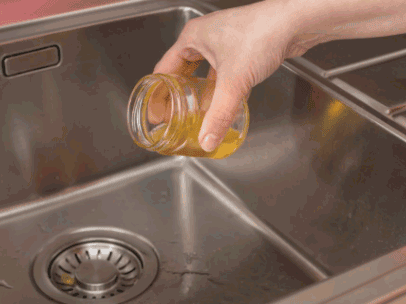
Tree Roots
Tree roots can invade the drain system, causing significant blockages and damage to the plumbing system as they grow and expand in search of water.
As tree roots penetrate the drain system, they can easily clog pipes and obstruct water flow. Signs of root-related blockages include slow drainage, gurgling sounds, or recurrent toilet blockages. To prevent these issues, regular inspections of the drainage system are essential to detect early signs of infiltration.
One effective solution to combat tree root invasions is the use of root barriers. These barriers can be installed underground to prevent roots from entering and damaging the drain pipes. By acting as a physical barrier, root barriers redirect root growth away from the plumbing system, preserving its integrity and functionality.
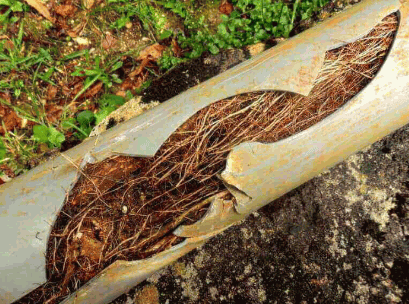
Foreign Objects
Foreign objects flushed down the loo or washed down sinks can cause major blockages, obstructing the flow of water and leading to significant drainage issues.
Among the common culprits are items like disposable wipes, cotton pads, dental floss, and sanitary products which, when disposed of inappropriately, accumulate and create blockages in the plumbing system. These blockages not only result in slow drainage and foul odours but can also lead to costly repairs and potential damage to pipes. To prevent such issues, it is crucial to avoid flushing these items and instead dispose of them in the bin.
Proper disposal methods not only maintain the efficiency of your plumbing but also contribute to a sustainable environment.
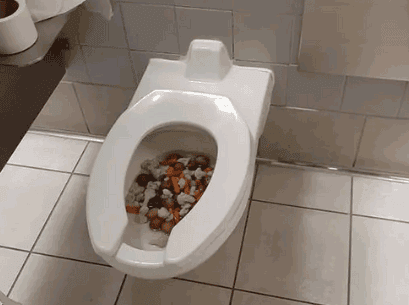
How To Clear A Blocked Drain?
Clearing a blocked drain can often be done using simple tools and methods such as plungers, chemical unblockers, and drain rods, although sometimes more advanced techniques may be required to address severe or stubborn blockages in the pipes.
Plunger
A plunger is a simple yet effective tool for clearing blockages in sinks and toilets by creating a suction that dislodges the obstruction.
When using a plunger on a sink, ensure you cover the overflow opening with a wet cloth to create a stronger seal and maximise suction. For toilets, make sure the plunger cup completely covers the drain opening. A gentle yet firm push-and-pull motion helps build up pressure, eventually dislodging the clog. If the plunger doesn't work initially, try adding petroleum jelly to the rim for a better seal. Remember to clean and sanitise the plunger after each use to prevent the spread of germs. Common issues like splashing can be minimised by using a slow and steady technique.
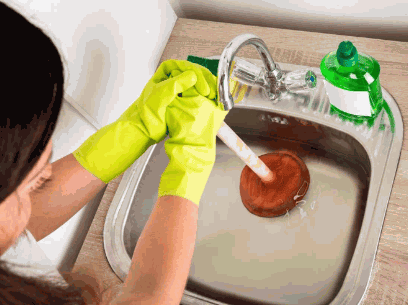
Baking Soda And Vinegar
A mixture of bicarbonate of soda and vinegar can be a natural and effective solution for cleaning and clearing minor drain blockages, utilising the chemical reaction between these two substances to break down debris.
- When using this method, start by pouring about a cup of bicarbonate of soda down the drain, followed by a cup of vinegar.
- Let the mixture sit for about 30 minutes to allow the fizzing action to work its magic and break up any clogs.
- After the waiting period, flush the drain with hot water to wash away the loosened debris.
This approach not only helps to unblock drains but is also safe for the environment and poses no risks to your health compared to harsh chemical drain cleaners. Plus, it's an affordable and readily available solution that can be used regularly for maintenance purposes.
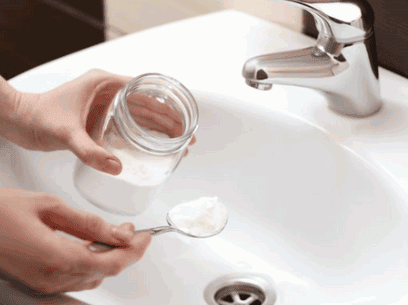
Hot Water And Dish Soap
Using hot water and washing-up liquid is an effective method for dissolving grease blockages in kitchen sinks, as the combination helps to break down and flush away greasy residues.
For optimal results, start by boiling a large pot of water, ensuring it's at a near-boiling temperature. Once ready, carefully pour the hot water down the plughole to help soften the hardened grease accumulation. Next, add a few generous squirts of washing-up liquid into the sink.
Let the soap sit for about 15-20 minutes to allow it to penetrate the grease blockages. The hot water and soap work together to emulsify the grease, making it easier to wash away. After the waiting period, flush the plughole with more hot water to clear the loosened residue down the pipes.
This method might not be effective for severe blockages or if the pipes are severely clogged. In such cases, it's advisable to consult a professional plumber to avoid any potential damage to the plumbing system.
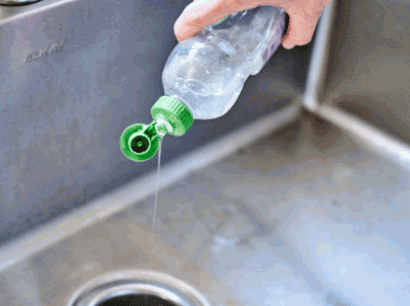
Drain Snake
A drain snake, also known as a plumber's auger, is a versatile tool for reaching and removing blockages that are deep within the pipes, particularly in U-bends and other hard-to-reach areas.
When using a drain snake, it's important to start by inserting the tool into the drain slowly and steadily, avoiding any sudden movements that could cause damage to the pipes. Correct usage of the snake involves feeding it into the blocked drain while turning the handle clockwise. If you come across resistance, gently rotate the snake to help it navigate past obstructions. Remember to wear gloves to protect your hands from any debris that may be dislodged during the process.
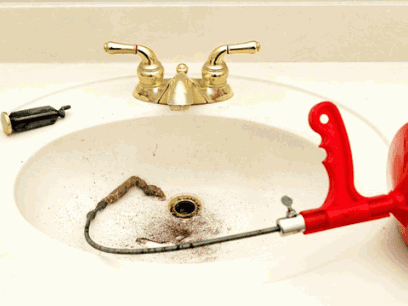
When To Call A Professional?
Knowing when to call a professional for drain issues is crucial, especially in cases of severe blockages or recurring problems that DIY methods cannot resolve, as companies like BDS Drainage have the expertise and tools to handle complex plumbing system issues effectively.
Signs that indicate the need for professional intervention include persistent blockages that keep coming back even after attempted fixes, multiple clogged drains throughout the property, foul odours emanating from the plumbing system, or slow drainage in several areas.
Professional services not only provide immediate solutions to these pressing issues but also offer long-term benefits such as preventing further damage to the plumbing infrastructure, reducing the risk of costly repairs in the future, and improving the overall efficiency and functionality of the system.